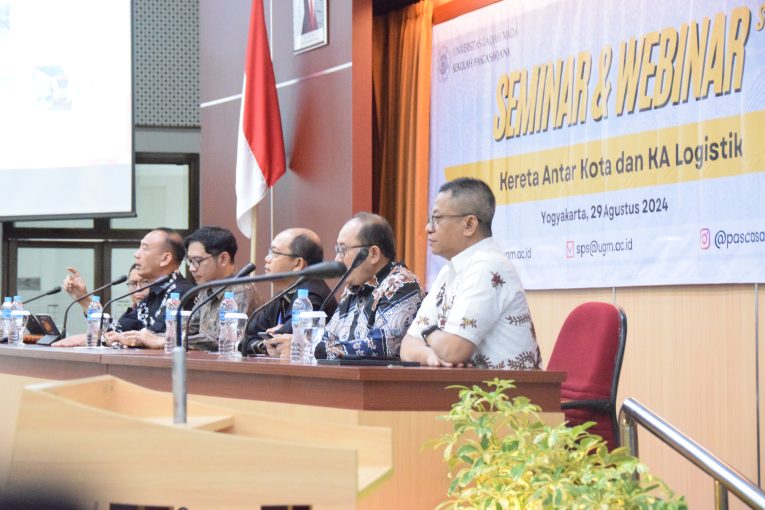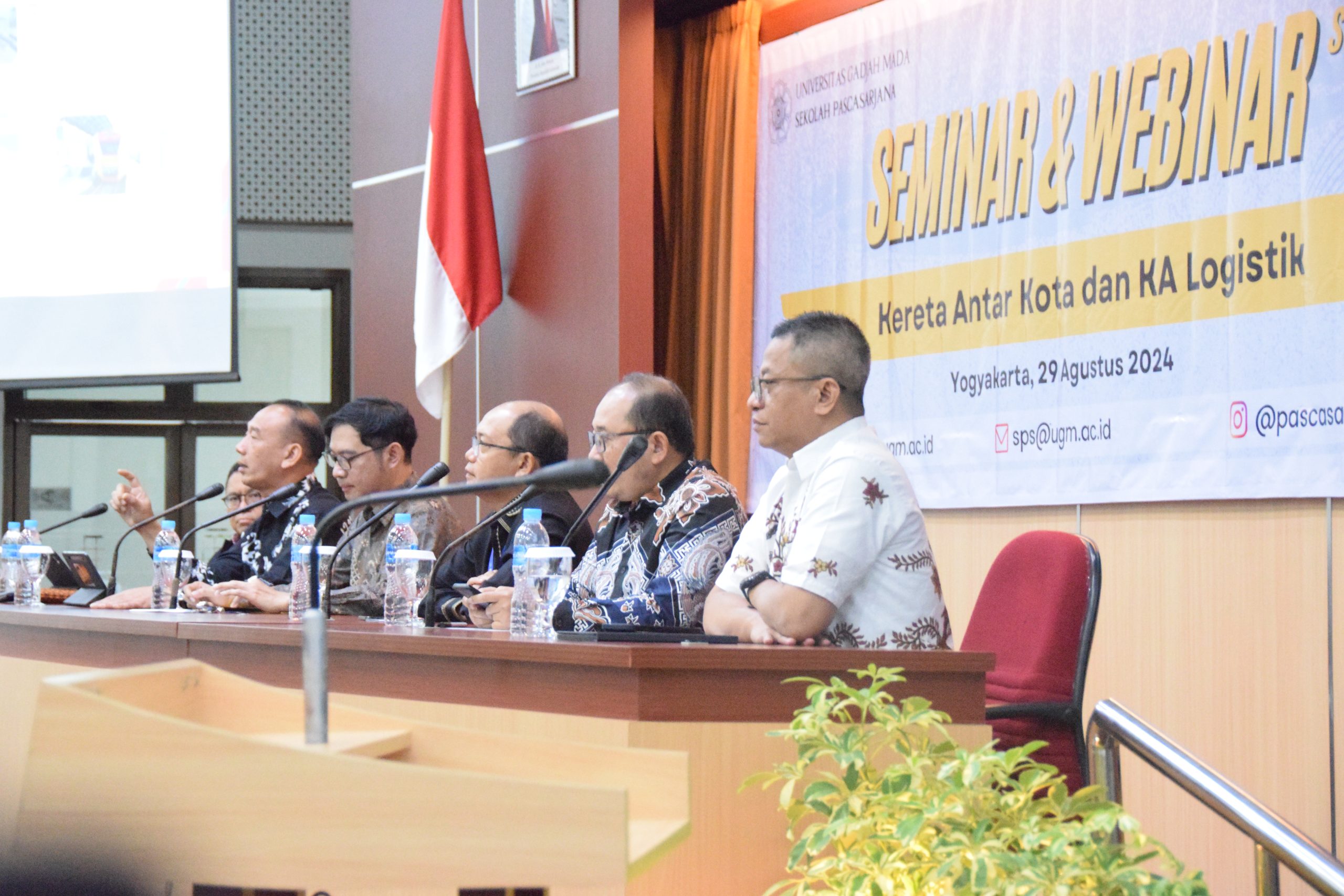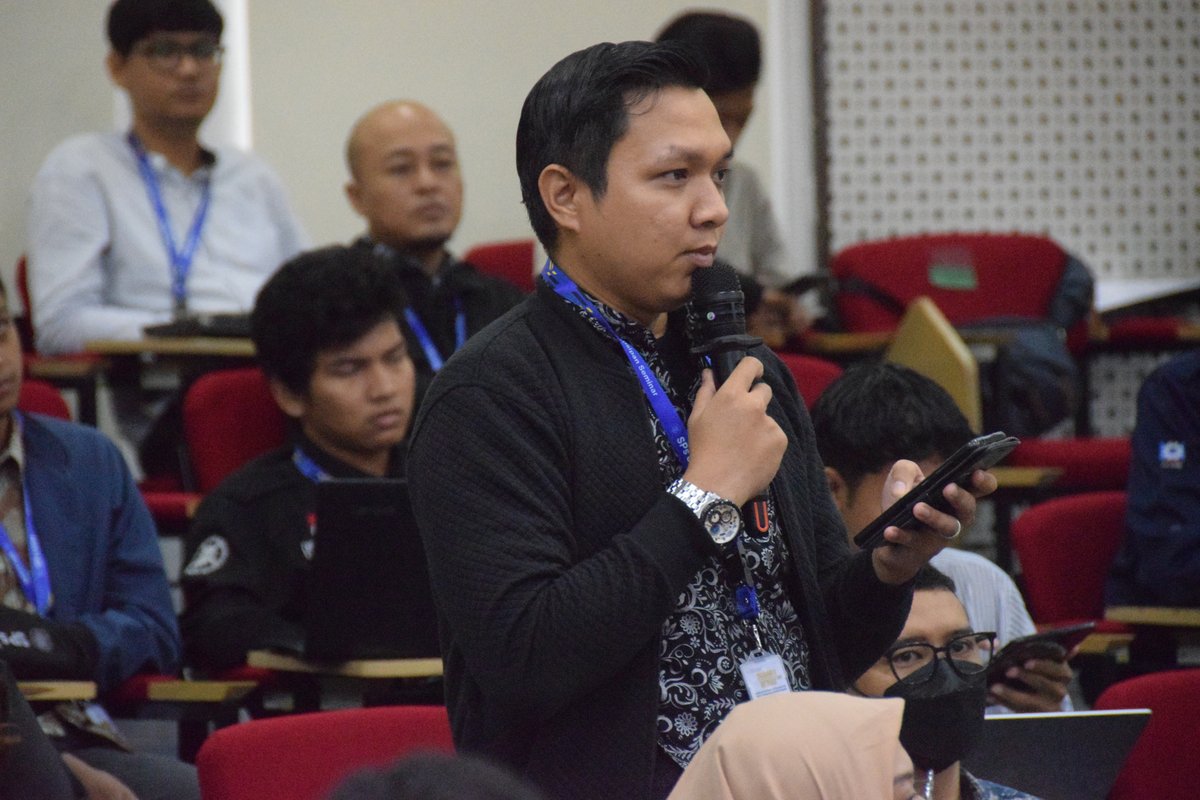
 In collaboration with the Graduate School of Universitas Gadjah Mada (SPs UGM), the Transportation Policy Agency, and the Directorate General of Railways of the Ministry of Transportation, the Seminar Expert Talk Series #2 was successfully held with the theme “Intercity Trains and Logistic Trains.” The event took place on Thursday, August 29th 2024, at the SPs UGM Auditorium.
In collaboration with the Graduate School of Universitas Gadjah Mada (SPs UGM), the Transportation Policy Agency, and the Directorate General of Railways of the Ministry of Transportation, the Seminar Expert Talk Series #2 was successfully held with the theme “Intercity Trains and Logistic Trains.” The event took place on Thursday, August 29th 2024, at the SPs UGM Auditorium.
During the seminar, Mr. Roestono, Vice President of Passenger Ticketing Sales, presented positive developments regarding the increasing number of passengers, which has reached around 41 million, making service improvement a top priority. The services provided include both physical and non-physical aspects, with renewal targets introduced annually.
 Mr. Roestono explained various strategies to enhance infrastructure, ranging from the improvement and addition of facilities at stations, fleet rejuvenation through new investment, and reducing travel time by utilizing Diesel Electric Multiple Unit (DEMU) trains. Service improvement also includes enhancing sales and ticketing applications, as well as partnerships with other entities to create multimodal service packages for both passengers and goods. Additionally, several new trains, such as the Argo Semeru, Argo Merbabu, Pandalungan, Manahan, and Banyubiru, have been launched as part of the implementation of the 2023 Railway Schedule (GAPEKA).
Mr. Roestono explained various strategies to enhance infrastructure, ranging from the improvement and addition of facilities at stations, fleet rejuvenation through new investment, and reducing travel time by utilizing Diesel Electric Multiple Unit (DEMU) trains. Service improvement also includes enhancing sales and ticketing applications, as well as partnerships with other entities to create multimodal service packages for both passengers and goods. Additionally, several new trains, such as the Argo Semeru, Argo Merbabu, Pandalungan, Manahan, and Banyubiru, have been launched as part of the implementation of the 2023 Railway Schedule (GAPEKA).
Environmentally friendly service innovations have become a focus, such as the installation of water drinking fountains at stations and the use of solar panels as part of conservation campaigns and eco-friendly technology. These initiatives align with efforts to increase revenue and customer satisfaction, which remains a top priority in every service provided by PT Kereta Api Indonesia (Persero).
Mr. Roestono also emphasized the importance of improving the connectivity of transportation services linking various modes of transport and travel routes efficiently and seamlessly. It includes the integration of physical and service aspects at various locations, the arrangement of stations, terminals, airports, and ports, as well as ticket integration for all service operators. The application of Environmental, Social, and Governance (ESG) principles also forms part of sustainable integration, with a focus on the development of green & smart ports, stations, and airports, as well as the provision of eco-friendly facilities.
In conclusion, Mr. Roestono emphasized that customer satisfaction is always the main priority in every service provided. He also suggested the development of services that can reduce travel time, such as the example of the Cilacap-Yogyakarta route, which can enhance the efficiency and competitiveness of intercity rail services in Indonesia.
Author: Arfikah Istari
